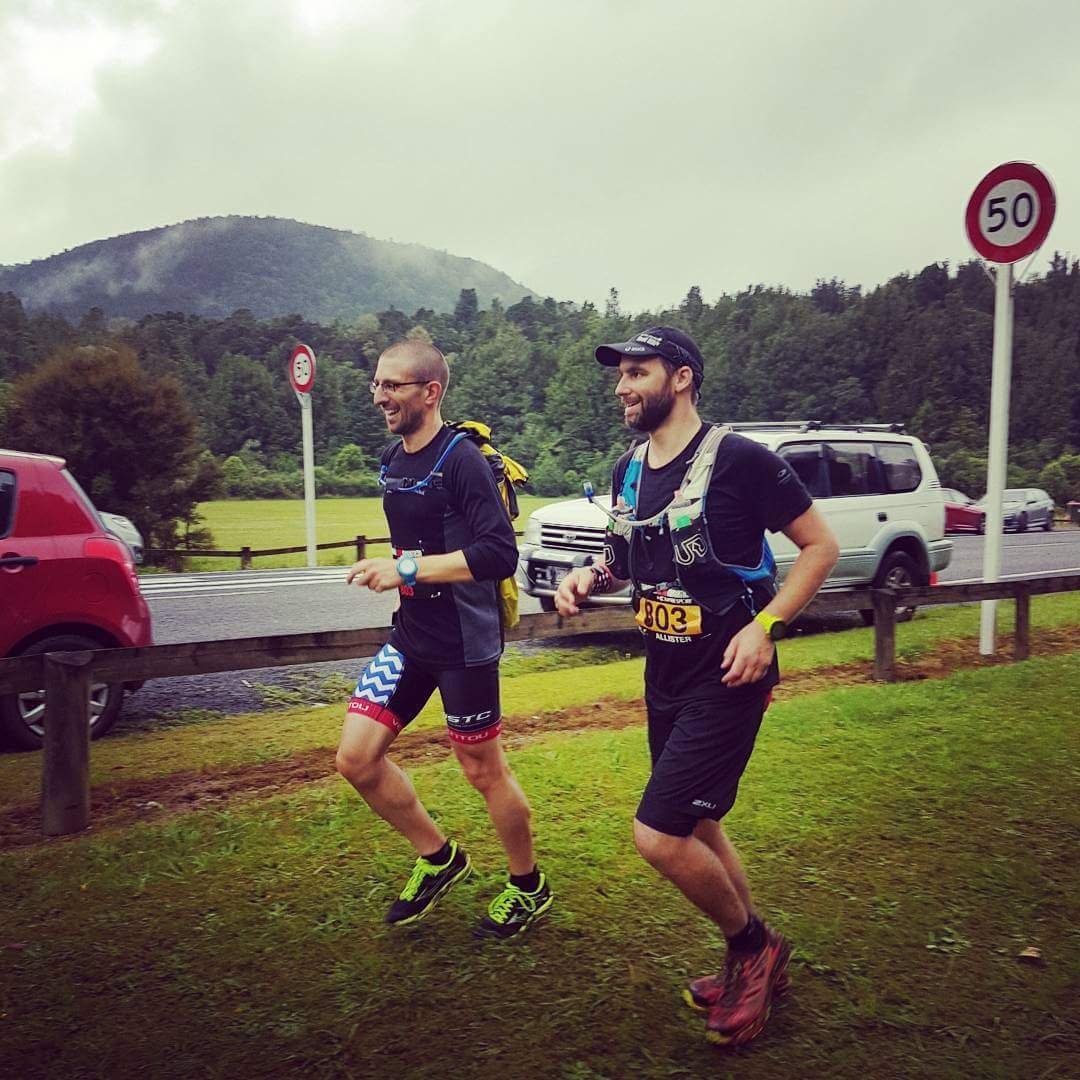
The pic is me supporting as pacer to a friend in the Tarawera Ultra Marathon in February 2018(http://www.taraweraultra.co.nz/)
We are on the home stretch of our Running ABC's and today we have the letter U. I couldn't think of anything else better for the letter U than the ultramarathon.
An ultramarathon is any footrace longer than the traditional marathon length of 42.2 kilometres. Its growing in popularity with the number of races increasing with it. If you are considering an ultramarathon, they also very in length from 50km to multi day races that are run over 100's of kilometres.
From what I am seeing though a majority of races are usually held out of the way in rural or country areas where runners can find an extra appreciation for their environment and the world around them.
If you're considering an ultramarathon somethings you may want to think about is that they are considered to be easier and better for you. Due to the fact you are slowing your pace down as well as the fact they are help of tarmac, an ultra won't cause the impact on your body that a marathon will. I can't speak from experience but some say that you may feel better after your first ultramarathon than what you did after your first marathon.
Preparing for an Ultramarathon
So how should you prepare for an ultramarathon. It all depends on your experience and skill level, but there are a few things you will need to remember:
Slow down
Running further distances and on different terrain, will generally mean slowing down. Firstly don't be worried about walking some parts and secondly, if you are slowing down, at a certain point this may change the way you run. As you probably see where I am going with this, a change in way you are running could also cause potential injuries. By making sure you are training at this pace, it will allow your body to adjust to a different running style and any changes in running mechanics.
Run distance to prepare your mind
If you have completed some marathons, changing to a 50k ultra will not be that much of a change for you, but you would still need to get your long run for the week in to make sure your mind is ready for the distance you are aiming for. If you are looking for a reference point as to how long your run should be, it should come close to 33% to 50% of your race distance. Just remember the longer your race is, the more difficult it will be to both fit this into your schedule, and recover for.
Alternatively, there is the rule where you training in hours should at least equal the time you are preparing to spend running your goal race. As an example, if you are planning to run a 100km race in 15 hours, your weekly training should amount to this number of hours.
Practice refueling
From the book Born to Run, they explain ultramarathons as “eating and drinking contests with a little exercise and scenery thrown in". I am not completely convinced this is correct but the reduced pace, combined with the longer distances mean you will need to make sure you are refueling correctly. Specifically you will need to make sure you are practicing this refueling during training.
Train On Similar Terrain
This goes without saying, especially on hilly courses. And remember the downhill is just as important as the uphill as different muscle groups are used.
If you missed any of the previous five posts, you can see them at the following link:
@run.vince.run/p-is-for-power-meter-in-our-running-abc-s
@run.vince.run/in-the-running-abc-s-q-is-for
@run.vince.run/in-the-running-abc-s-r-is-for-recovery
@run.vince.run/s-is-for-stretching-in-our-running-abc-s
@run.vince.run/in-the-running-abc-s-t-is-for-training-mask
